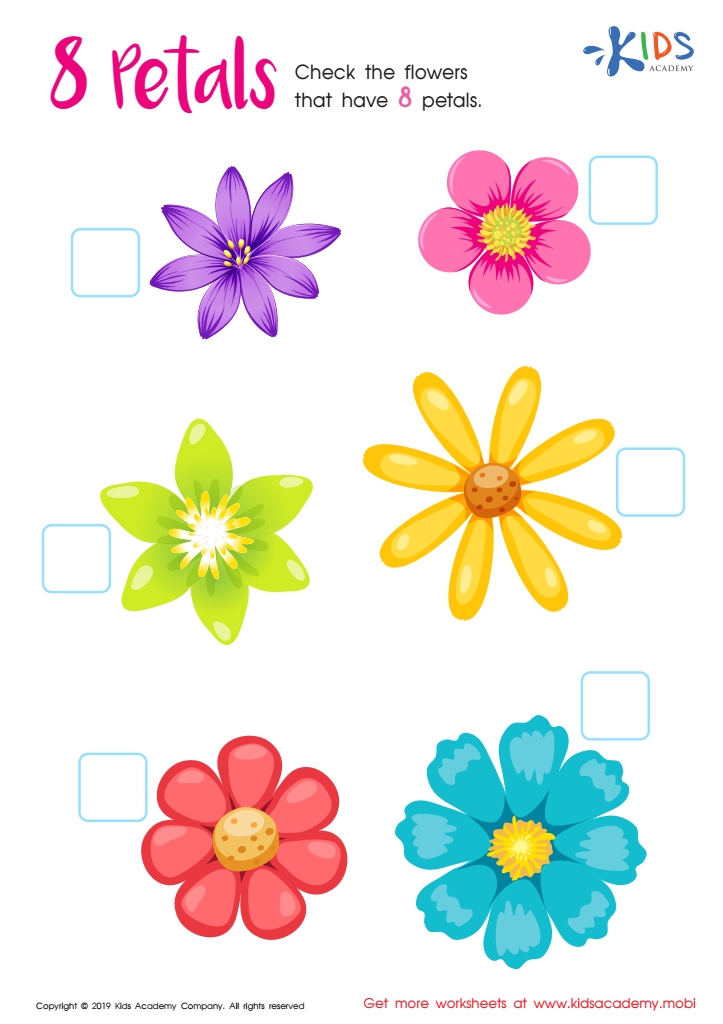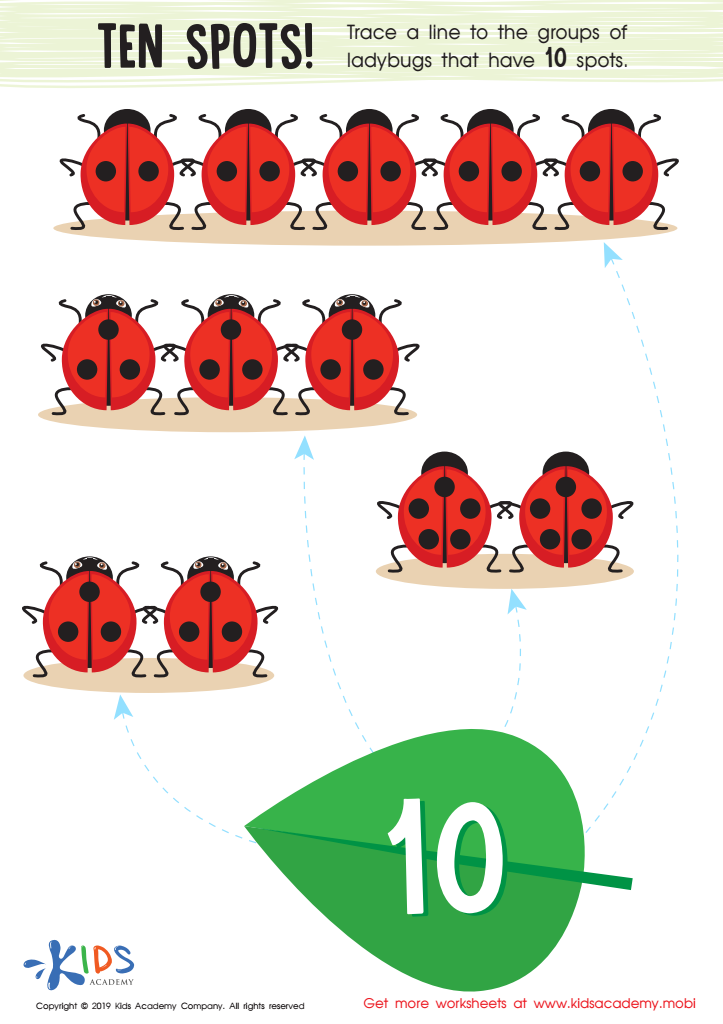Fine Motor Skills Normal Counting Worksheets for Ages 4-7
3 filtered results
-
From - To
Enhance your child's fine motor skills and counting abilities with our engaging Normal Counting Worksheets designed for ages 4-7. These worksheets incorporate colorful illustrations and interactive activities that help young learners practice counting while developing their hand coordination and dexterity. Each printable sheet features a variety of counting exercises, from identifying numbers to counting objects, ensuring a comprehensive learning experience. Perfect for classroom use or at-home practice, our worksheets foster a fun and educational environment. Choose our Fine Motor Skills Normal Counting Worksheets to support your child's growth in math and motor skills while encouraging creativity and exploration!


8 Petals Worksheet


Ten Spots Worksheet


Frog Countdown Worksheet
Fine motor skills and normal counting are crucial developmental milestones for children aged 4-7, as they lay the foundation for future learning and independence. Fine motor skills involve the coordinated use of small muscles, particularly in the hands and fingers. Mastering these skills allows children to perform essential tasks such as writing, drawing, and self-feeding, promoting their dexterity and confidence. Parents and teachers should care about this because strong fine motor skills directly correlate with a child's academic success and social interactions.
Similarly, normal counting is fundamental for cognitive development. During this age, children transition from simple rote counting to understanding quantities, number recognition, and basic arithmetic. This understanding is vital as it supports problem-solving skills and fosters a positive attitude towards mathematics.
Encouraging both fine motor skills and counting through engaging activities enhances children's overall growth, promoting their ability to explore, create, and connect with their environment. Parents and teachers play a critical role in facilitating this development by providing opportunities for play, hands-on activities, and structured learning. By nurturing these skills, they set the stage for future academic achievement and lifelong learning. Investing in these areas benefits children's emotional, social, and intellectual growth.
 Assign to My Students
Assign to My Students















